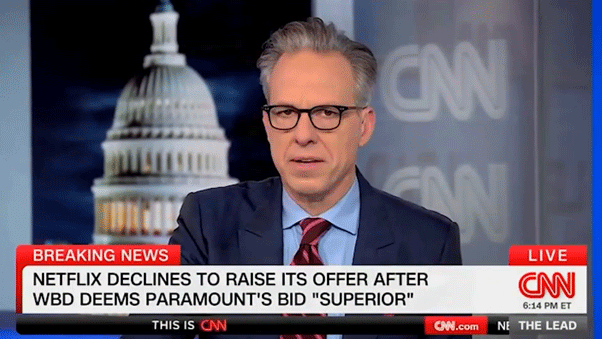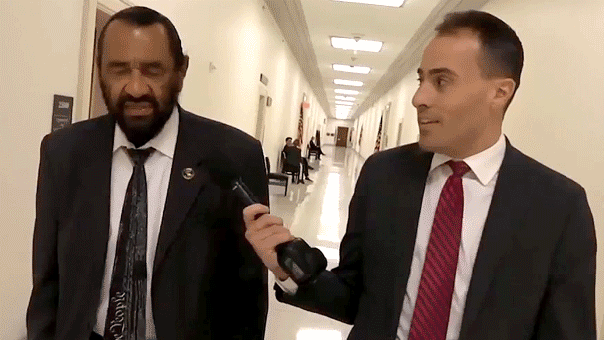CNN reporter calls Claudine Gay's plagiarism accusations 'sloppy attribution'
CNN reporter Matt Egan discusses Claudine Gay's resignation as Harvard president after her plagiarism scandal, which he called more "sloppy attribution" than stealing other ideas.
An academic author and former Harvard professor defended former Harvard President Claudine Gay after her plagiarism scandal, arguing citation mistakes are commonly found in academic work.
"Essentially, what I have to say is what a lot of people have said. What she did was a minor infraction of the rules," Dr. Marshall Poe told Fox News Digital.
Poe spent years teaching Russian and Eurasian history at elite universities like Harvard and has published interviews with thousands of scholars for his podcast platform, the New Books Network.
An academic author himself, Poe argues true "idea theft" in academia is exceedingly rare, and he doesn't believe Gay was guilty of it.
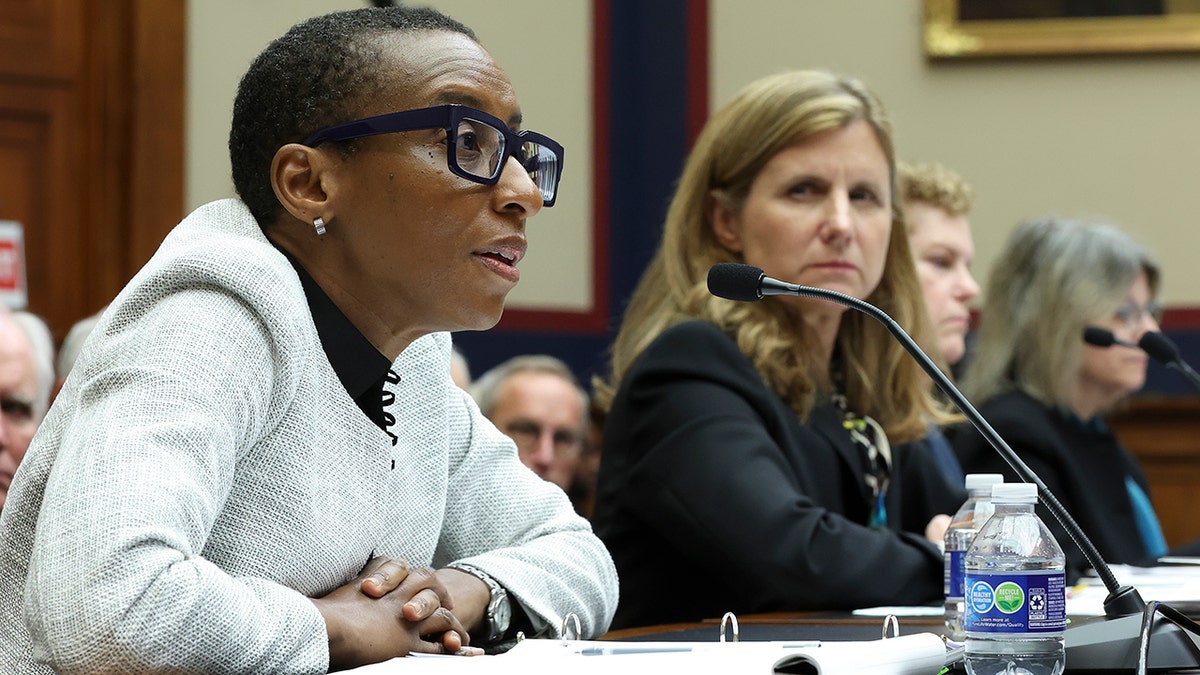
Dr. Claudine Gay, President of Harvard University, Liz Magill, President of University of Pennsylvania, Dr. Pamela Nadell, Professor of History and Jewish Studies at American University, and Dr. Sally Kornbluth, President of Massachusetts Institute of Technology, testify before the House Education and Workforce Committee at the Rayburn House Office Building on December 05, 2023, in Washington, D.C. ((Photo by Kevin Dietsch/Getty Images))
"It was not done intentionally. She did not commit what I like to call, 'idea theft' intentionally. That is the thing that we are trained not to do. Do not commit idea theft. There's nothing to gain from it and everything to lose from it. And she, as far as I can tell, did not do that. In fact, in my almost 40 years in academia, I don't know if I've ever seen anyone do it. This would be claiming somebody else's work or ideas as your own," he said.
Gay resigned in early January after multiple accusations of plagiarism uncovered by conservative activist Christopher Rufo and the Washington Free Beacon, which followed Gay's controversial congressional testimony last month on campus antisemitism.
In one instance, she was accused of lifting paragraphs of material verbatim from another scholar for a 2001 paper. Nearly half of Gay's published works were riddled with plagiarism, according to reporting from the Free Beacon.
Poe said Gay and other scholars are "trained" from the very beginning to avoid taking someone else's ideas or words without citations or quotations. These rules follow tradition and build trust in the academic community, he says, but mistakes will be made and are more prevalent than people think.
"I think every academic like Claudine Gay does try to avoid it… But in academic works of the size we're talking about, it's just not possible to check everything, and it would be a tremendous waste to try, because we generally trust these people. They're not acting out of bad faith," he continued.
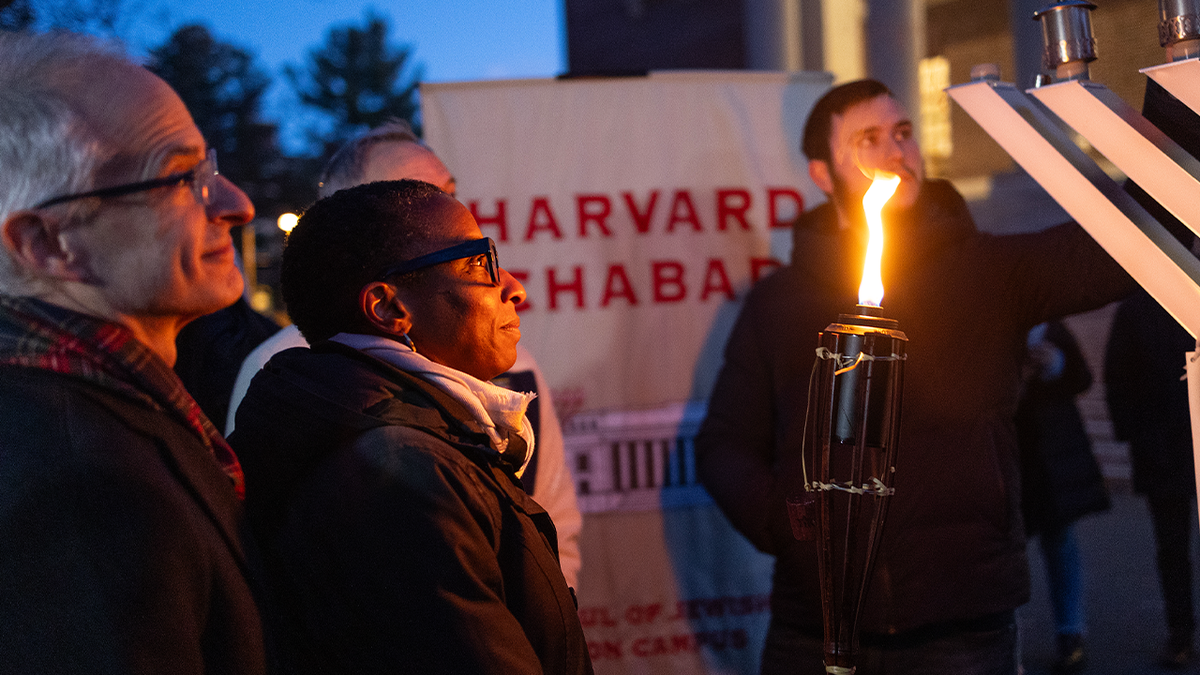
Harvard President Claudine Gay faced calls to resign after dozens of instances of alleged plagiarism were found in her works. (Andrew Lichtenstein/Corbis via Getty Images)
Comparing academia to the game of golf, he argued it must be self-policed for these issues.
"In golf there are no umpires or referees. It's self-policed. And the reason is that all of the golfers know and follow the rules. And this is the only way it can work in academia or in golf. In academia we have peer review, which means somebody looks at your work to see where it meets scholarly standards and asserts anything new. But no peer reviewer can go through every line and every footnote to see if there hasn't been some mistake made. And there are always mistakes made in any academic project of any size, especially a book," he remarked.
While Gay's critics have complained that students would be expelled for committing just a fraction of what Gay is accused of, Poe has a different perspective on this alleged discrepancy in discipline for acts of plagiarism.
Students should be held to a higher standard because this is part of the training process in equipping them to follow academia's rules on avoiding plagiarism, he said.
"These are people in training. So they have to be and they're also producing very short works. Not books. So they have to be held to a very high standard. Unlike people who've already gone through the training… They need to be sent the message that you really need to avoid this if you can," Poe argued.
BILL ACKMAN OUTLINES MIT PLAGIARISM PROBE, DEFENDS WIFE FROM ALLEGATIONS
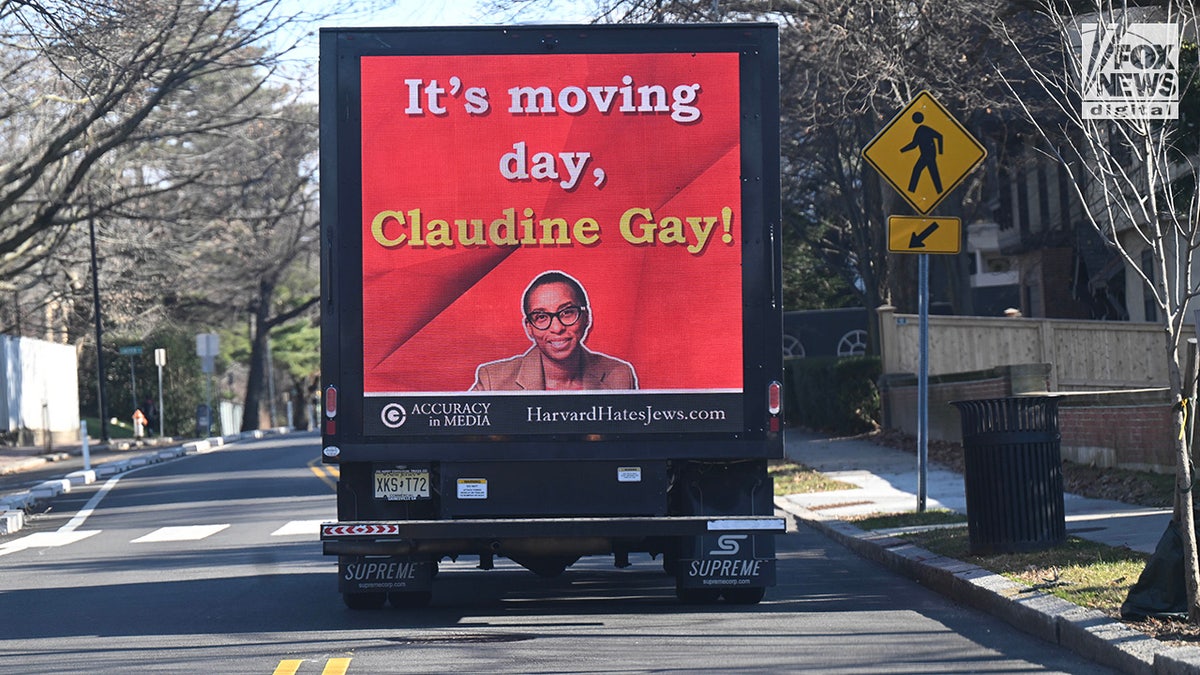
Dr. Marshall Poe argued Claudine Gay was guilty of minor infractions that weren't worthy of the attention she received. (Hans Pennink for Fox News Digital)
Poe said that academics should issue corrections when plagiarism instances are found in their work. He compared the process to media outlets issuing corrections or to lists of corrections added to subsequent publications of books and other published works where errors are found.
"These are standard things and have been for literally hundreds of years," Poe said. "You know, this is the way it works. We find mistakes and we correct them. Now, this is, of course, very different from a case in which someone maliciously commits idea theft. That's a much more serious infraction. But as I say, it's vanishingly rare."
Attempts to root out plagiarism in higher learning through the use of Artificial Intelligence "AI" technology is a waste of university resources, he argued. Billionaire Harvard alum Bill Ackman recently pledged to back an AI startup to pursue this effort.
"First of all, it's malicious, in this case, he is looking for a gotcha moment," Poe said. "He wants to catch these people out in what he thinks is a really horrible infraction of scholarly ethics. And I don't generally like anything that's done out of malice. Second of all, it's a huge waste of resources… Investing a lot of money in AI tools that go through and check every quotation mark and citation—I think that money could be put to better use in improving schools."
"I put it this way: It's a solution to no known problem."
CLICK HERE TO GET THE FOX NEWS APP
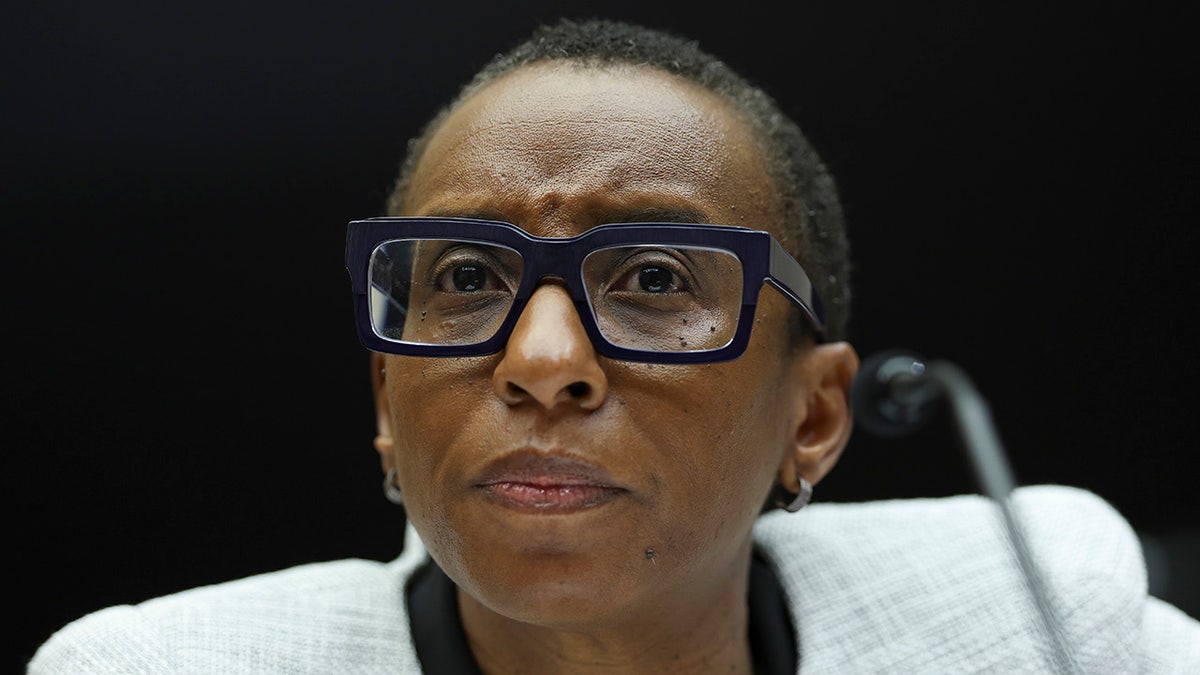
Former Harvard President Claudine Gay argued in a New York Times op-ed that she faced pressure from a coordinated campaign because of her race. (Kevin Dietsch/Getty Images)
Several academics defended Gay after her resignation, downplaying the charges and accusing her critics of conducting a racist witch hunt.
In a New York Times guest essay after her resignation, Gay echoed this sentiment, arguing she was targeted by a coordinated campaign that "recycled tired racial stereotypes about Black talent and temperament."
Other critics like Bates College assistant professor Tyler Austin Harper argued Gay's defenders were trying to "redefine plagiarism."
"The true scandal of the Claudine Gay affair is not a Harvard president and her plagiarism. The true scandal is that so many journalists and academics were willing, are still willing, to redefine plagiarism to suit their politics," he wrote for The Atlantic on January 4.
Fox News' David Rutz contributed to this report.











